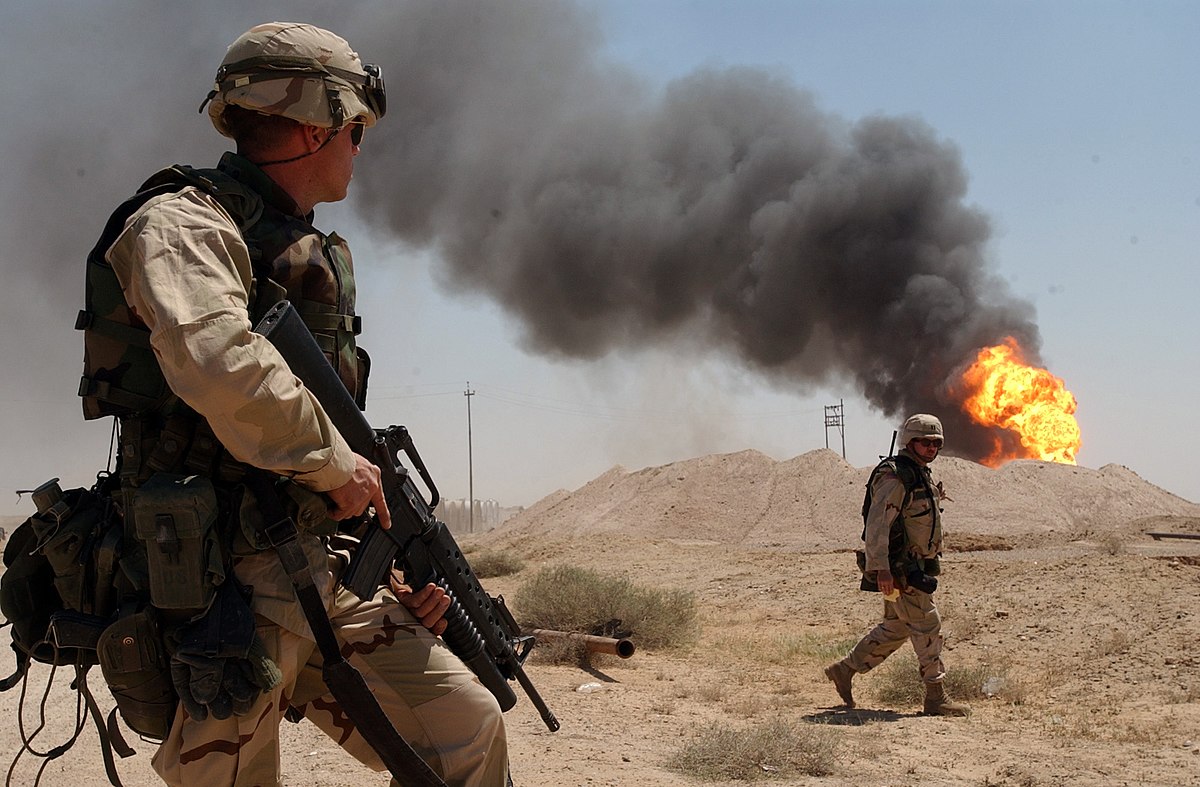
2003 Invasion of Iraq
IraqThe 2003 invasion of Iraq, also known as the Iraq War, was a military campaign launched by the United States, the United Kingdom, and a coalition of other countries, with the goal of removing the regime of Saddam Hussein and eliminating the threat of weapons of mass destruction (WMDs) in Iraq. The invasion began on March 20, 2003 and was met with little resistance from the Iraqi military, which quickly collapsed.
The justification for the war was primarily based on the claim that Iraq had WMDs and that they posed a threat to the United States and its allies. The Bush administration argued that these weapons could be used by Iraq or provided to terrorist groups for attacks on the U.S. and its allies. However, no significant stockpiles of WMDs were found after the fall of the regime and it was later determined that Iraq did not possess WMDs, which was a key factor that led to the decline of public support of the war.
The fall of Saddam Hussein's government was relatively quick and the U.S. military was able to capture Baghdad, Iraq's capital, in a matter of weeks. But the post-invasion phase quickly proved to be much more difficult, as an insurgency began to form, composed of remnants of the old regime, as well as religious and ethnic groups that opposed the presence of foreign troops in Iraq.
The insurgency was fueled by a number of factors, including the lack of a clear plan for post-war stabilization, inadequate resources to rebuild the country and provide essential services, and the failure to integrate the Iraqi military and other government institutions into the new government. The insurgency grew in strength, and the U.S. military found itself engaged in a prolonged and bloody conflict that lasted for years.
Additionally, the political situation in Iraq also proved to be complex and difficult to navigate, as various religious and ethnic groups struggled for power and influence in the new government. This led to widespread sectarian violence and ethnic cleansing, particularly between the majority Shia population and the minority Sunni population, which left hundreds of thousands of people dead and displaced millions.
The U.S. and its coalition partners eventually succeeded in stabilizing the country, but the war in Iraq has had significant long-term consequences. The cost of the war in terms of lives lost and dollars spent was enormous, as was the human cost in Iraq, with estimates of hundreds of thousands of people killed and millions displaced. The war was also one of the major factors that led to the rise of extremist groups in Iraq such as ISIS and continues to have a profound impact on U.S. foreign policy and global politics until this day.
